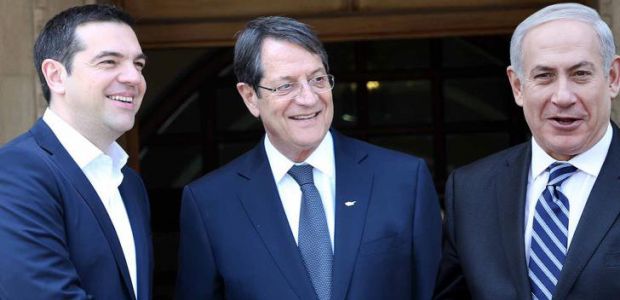The leaders of Greece, Cyprus and Israel have reached an agreement to develop the East Med natural gas pipeline, planned to carry enormous southeast Mediterranean natural gas deposits to the EU via Greece. They met today at the Israeli city Beersheba for a fifth summit on the issue.
The project’s development plan still needs to be endorsed by the European Commission before a final agreement is signed by the three countries. This is expected in the the first quarter of 2019.
The European Commission has already received the project’s details and is expected to offer its approval early in 2019.
Greece’s Prime Minister Alexis Tsipras, joined by energy minister Giorgos Stathakis for the Israel trip, and the respective leaders of Cyprus and Israel, Nicos Anastasiades and Benjamin Netanyahu, are scheduled to sign related memorandums later in the day.
In the lead-up to today’s session, diplomats had described the meeting as one of the last pre-construction steps for the East Med project.
A disputed electricity grid interconnection project involving the three countries has not been included on today’s agenda. Greek authorities awarded Ariadne Interconnector, an SPV established by Greek power grid operator IPTO, control of the Greek-Cypriot-Israeli project’s Crete-Athens segment, despite European Commission objections.
Brussels favors Euroasia Interconnector, a consortium of Cypriot interests heading the wider Greek-Cypriot-Israeli project, for control of its Crete-Athens segment.
The East Med natural gas pipeline, whose cost has been estimated at 7 billion dollars, promises to be the world’s biggest submarine pipeline – in terms of length and depth.
The US has showed increased support for the project in recent times. US involvement in the project has not been excluded.
An annual gas transmission objective of 20 bcm has been set for East Med. EU natural gas needs have been forecast to reach 100 bcm in 2030.





